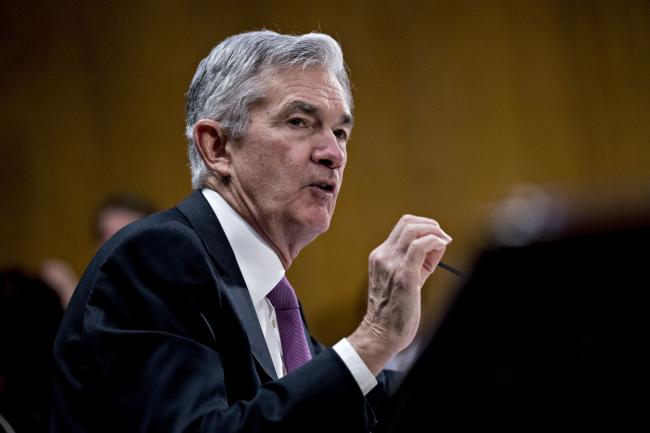(Bloomberg) -- Federal Reserve Chairman Jerome Powell repeated the central bank’s recent mantra of pledging patience in the face of conflicting economic signals and subdued inflation.
“The Federal Open Market Committee will be patient as we determine what future adjustments to the target range for the federal funds rate may be appropriate to support our dual-mandate objectives,” Powell said in the text of a speech Thursday evening in New York.
“This common-sense risk-management approach has served the Committee well in the past,” he added.
Powell’s remarks followed a report from the Commerce Department released earlier on Thursday showing the U.S. economy cooled by less than expected in the fourth quarter of 2018. Annualized growth for October to December hit 2.6 percent, compared with forecasts for 2.2 percent.
Powell didn’t reference the new data but described the economy as “in a good place,” with the now 10-year expansion pushing unemployment down for all racial and ethnic groups, increasing labor force participation and raising wages.
That has all come, he noted, with continued low inflation. “Signs of upward pressure on inflation appear muted despite the strong labor market,” Powell said.
He also drew attention to “crosscurrents and conflicting signals about the near-term outlook.” These included slowing growth in China and Europe, uncertainties surrounding Brexit and ongoing trade negotiations, and unexpectedly weak retail sales in December.
The U.S. economy’s expansion is poised to become the longest on record within a few months. Economists expect gross domestic product to expand 2.5 percent in 2019 though the quarterly pace will gradually decelerate into 2020, according to estimates tracked by Bloomberg.
Fed officials kept their target range for the federal funds rate on hold, at 2.25 percent to 2.5 percent, when they met Jan. 29-30. They’ll gather again in Washington March 19-20, when most economists and investors expect they’ll again leave rates unchanged.
Repeating a message he delivered to U.S. lawmakers in two days of Congressional testimony earlier this week, Powell also outlined two longer-run challenges confronting the U.S. economy: slowing labor force growth and lower productivity growth.
Powell said solutions to those issues lay outside the central bank’s purview, but he urged other government officials to address them, though he stayed away from specifics.
“Policies that bring prime-age workers into productive employment, particularly those who may have been left behind because of low skills or educational attainment, could bring great benefits both to those workers and to our economy,” he said.
